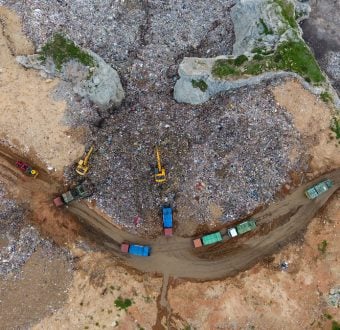For Immediate Release
September 19, 2017
PHOTOS:
https://www.flickr.com/photos/greenpeace_usa/sets/72157686868839044
Local & National Groups Team Up To Host “No Pipelines” Training Camp
Activists, Allies, and Landowners Share Skills To Oppose Atlantic Coast and Mountain Valley Pipelines
Nellysford, VA—This past weekend, nearly 100 landowners, activists, and allies opposed to the Atlantic Coast and Mountain Valley pipelines gathered for a three-day training camp to share skills and participate in nonviolent direct action trainings. Greenpeace USA joined local groups NoACP, Friends of Nelson, and Blue Ridge Rapid Response to host the camp and trainings.
Participants were trained in climbing resistance, nonviolent direct action tactics, and a variety of safety and rescue techniques as well as workshops in citizen droning, landowner preparedness, and racial justice.
“Powerful fossil fuel interests want to carve up beautiful mountains, contribute to catastrophic climate change, and delay a just transition to renewable energy- all to line the pockets of company executives,” said Greenpeace USA spokesperson and Roanoke resident Cassady Craighill. “Peaceful resistance is crucial to stopping fossil fuel projects, particularly when the Trump White House bends over backwards to accommodate the oil and gas industry. When communities come together in solidarity, it is possible to defeat powerful corporate interests.”
Greenpeace USA has partnered all summer with local organizations opposing fossil fuel pipelines to hold multi-day training camps in Louisiana and Washington State as well as general resistance trainings in several cities as part of the “Summer of Resistance.”
Seldon C. Smith, with the Richmond based group NoACP said “We’re excited to share in this weekend of fellowship and skill building with other land and water protectors from across the region. For us, this camp is a culmination of strategy workshops we’ve done this summer to strengthen relationships built over the past three years with affected communities and amplify our diverse and collective efforts. The people won’t tolerate the public health risks and planetary harm posed by these pipelines, and we will stand up for ourselves if Governor McAuliffe and other government agencies won’t.”
“Nelson County is one of the hearts of pipeline resistance,” said Ernie Reed, President of Friends of Nelson. “This is just one of many places where we all stand together, with the knowledge and skills to stop this runaway train of pipeline madness.”
Becca Forrester has been volunteering with Blue Ridge Rapid Response, and described the project as “neighbors helping neighbors.” She said, “I feel strongly about supporting landowners so they don’t have to be alone as surveyors attempt to trespass on their land. Peoples’ right to health and safety shouldn’t be trampled in the name of corporate profits.”
The No Pipelines camp is the latest in a series of protests opposing natural gas pipelines across the region. Last week, the Chesapeake Climate Action Network Action Fund led “People’s Pipeline Protest,” with rallies, prayer vigils and sit-ins outside Department of Environmental Quality offices all over the state. Activists in North Carolina recently held accompanying protests at regional DEQ offices including prayer vigils by local clergy members. The pipelines have also met recent regulatory setbacks as well when the West Virginia Department of Environmental Protection rescinded its approval for the Mountain Valley Pipeline in a letter last week stating that the regulator is vacating the water quality certification for the project. North Carolina also delayed its decision regarding the Clean Water Permit for the Atlantic Coast Pipeline after receiving thousands of public comments.
If constructed, Dominion Power’s proposed Atlantic Coast Pipeline would run through the George Washington National Forest, impacting the Appalachian Trail and the Blue Ridge Parkway. The Mountain Valley Pipeline cuts through the Jefferson National Forest, crosses the Appalachian Trail and Blue Ridge Parkway as well as impacting three major water aquifers. Both pipelines come with methane leaks, threats to water sources, and contributions to climate change.
PHOTOS:
https://www.flickr.com/photos/greenpeace_usa/sets/72157686868839044
Contact:
Cassady Craighill, [email protected], 828-817-3328


